A Visit to the Body Museum | Khalifa University, Abu Dhabi 🇦🇪
Let's Learn About the Human Body
As I was browsing through facebook a few days ago, I came across this link to the Body Museum located at the Khalifa University - not too far from where we live. I thought it is a great opportunity to take the kids on a little "field trip" and get to see what's inside the human body in a way, oh well, we all will never forget.
⚠️ Warning!
Some of the following photos may be disturbing, although I tried my best to choose the least graphic for everyone.
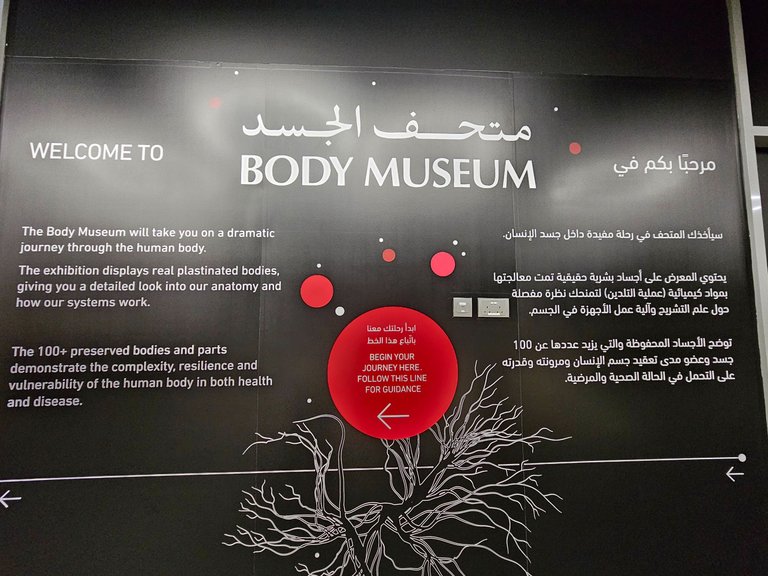
The Body Museum is located in Khalifa University, located at the corner of 19th Street Shakbout Bin Sultan Street and Muroor Road (Sultan Bin Zayed the 1st Street).
Map: https://goo.gl/maps/QJ9ZEuCNsVYFx16B9
Entry: from 8 years old, children aged up to 17 years must be accompanied by an adult.
Prior booking is required, which could be done through their website https://bodymuseum.ku.ac.ae/book-your-visit.
Entry to the museum is free.
Visitors can also access the parking spaces inside the building which is great because there are not too many parking spots around the area.
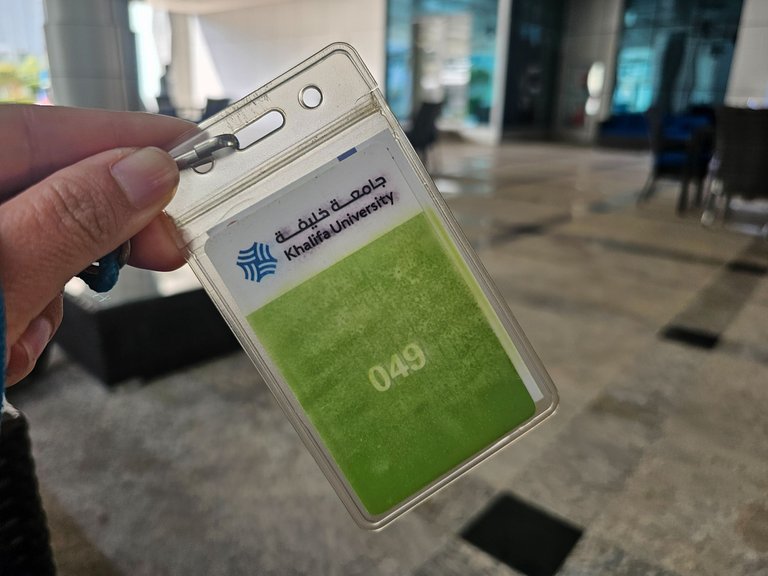
These are exhibits from real human bodies!
As soon as we entered, the kids were not too amused. Knowing that we are seeing actual human body parts inside glass boxes! That's ahhmm, "disturbing". That is why they require visitors to be at least aged 8 years so that they already have a sense of maturity to understand that these exhibits are for educational and medical purposes.
Honestly, I felt the same until the "disgust" was turned into "interest". The kids, I could not say they were very excited about it, but yes, they took the learning part.
Preserved to last forever.
The exhibited body parts are preserved through a process called plastination. First, they stop decay with a special fluid like Formaldehyde. Then, they carefully remove unwanted tissue to reveal muscles using solvent solutions (acetone bath). Next, they use a bath and vacuum to replace water and fat with a special plastic. Finally, they pose the body and harden the plastic, creating a detailed, durable specimen for learning and amazement.
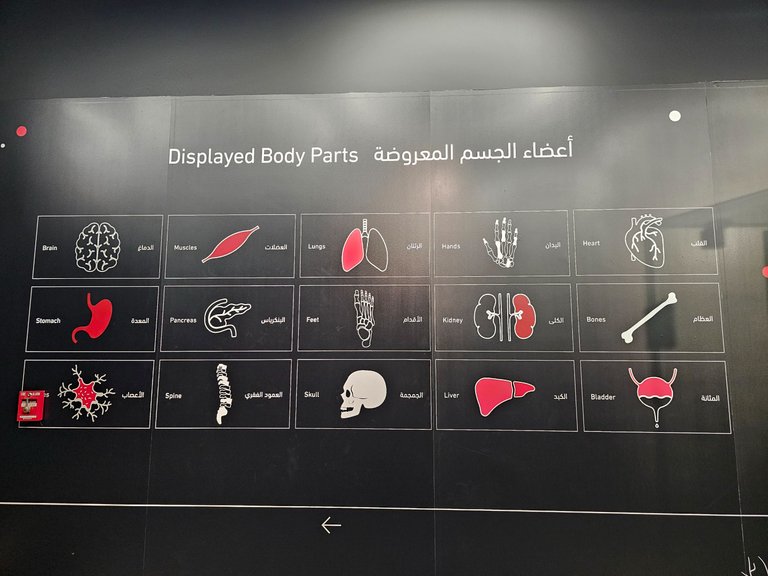
"This is why I am never going to smoke."
Little Man called me and showed me these pair of lungs. The lungs were coated with tar and severely damaged from smoking.
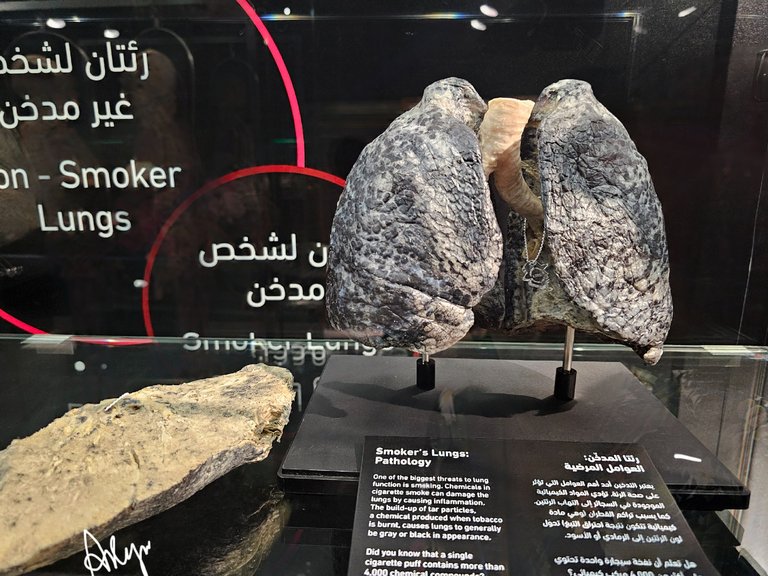
Meanwhile, see how these healthy pair of lungs differ from the smoker's lungs.
Yes, people! Never smoke. Or if you do, consider quitting soon!
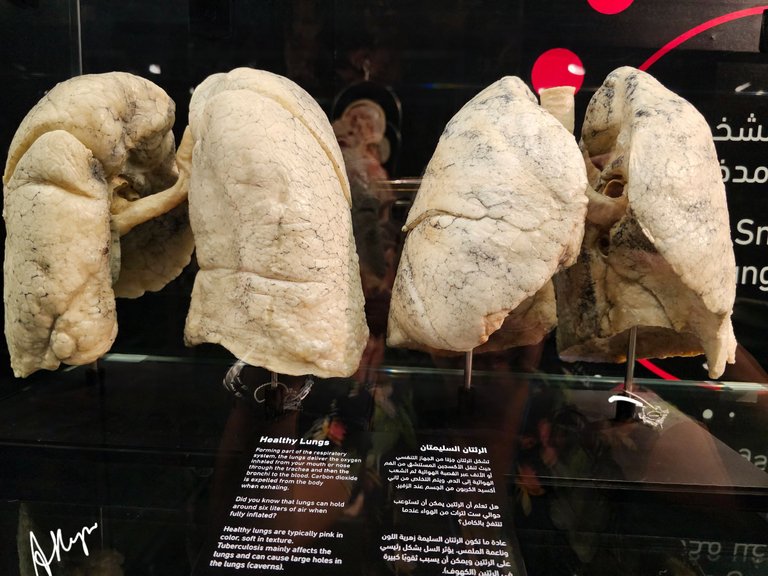
The Brain
Boy oh boy! I can show you a lot of ways they presented the brain in this exhibit, but I will just stick to these two that show how brains that suffer from stroke look like.
We know that there are two types of stroke - hemorrhagic and ischaemic, the former is when a blood vessel inside the skull bursts and bleeds into and around the brain, while the latter happens when a blood clot blocks the flow of blood and oxygen to the brain.
This one below is a brain of a person that suffered ischaemic stroke and the part where the nerve tissues died due to lack of oxygen appeared as a hole in the brain.
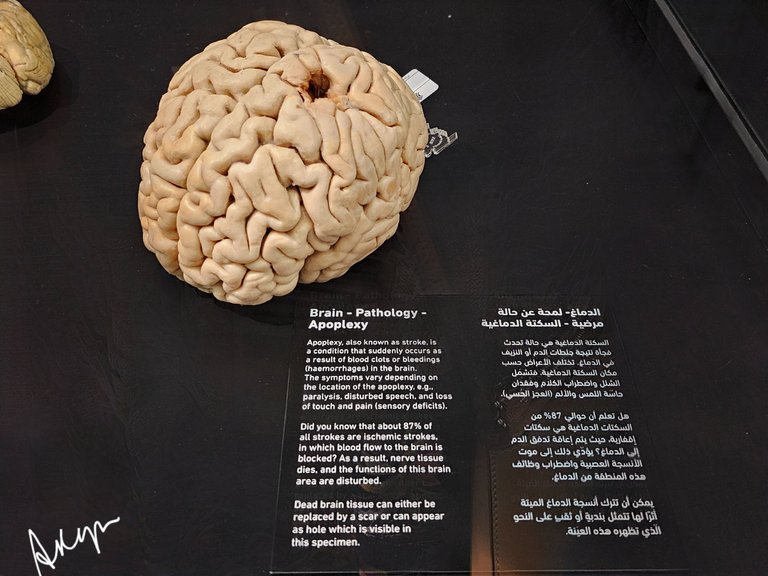
This is a hemorrhaging brain. It could be caused by head trauma (accidents), high blood pressure, anticoagulant medication, and aneurysm.
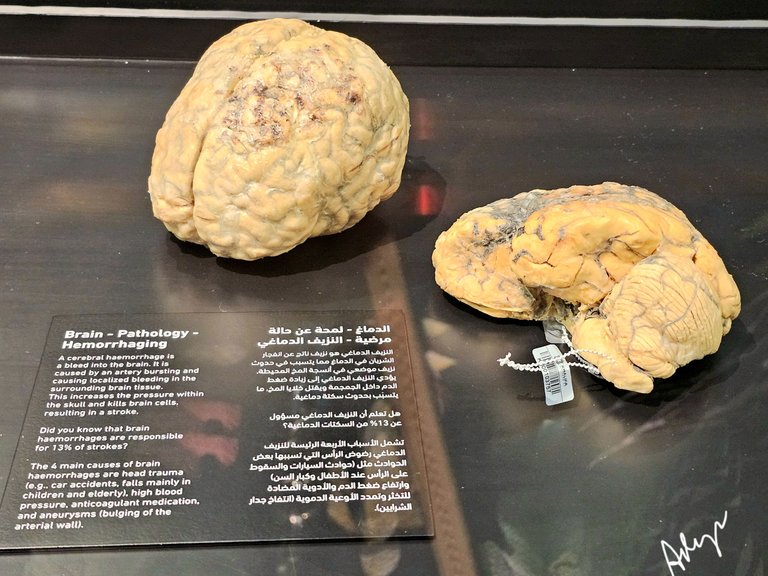
Overall, this reminds us to lead a healthy lifestyle in order to avoid diseases that could potentially lead to stroke.
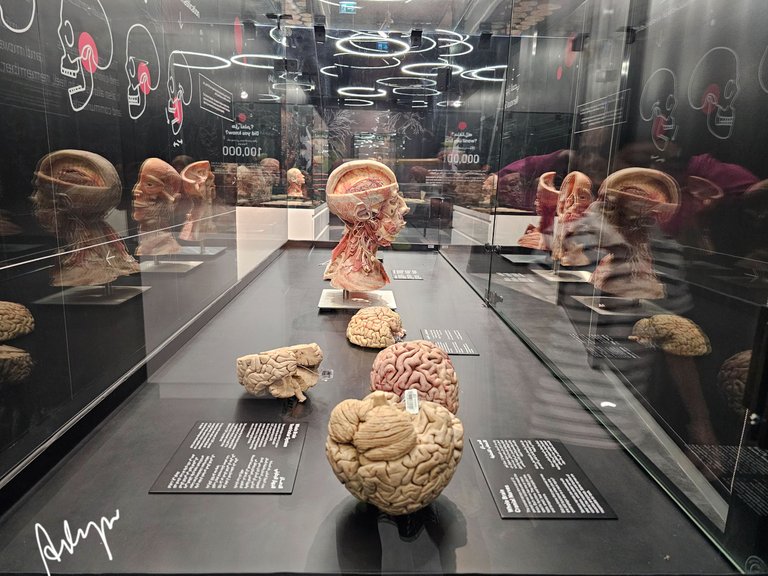
The Nervous System
This exhibit of the nervous system shows us the complex network of nerves and that extend to all over the body. Can you imagine how these wire-like structures inside our body carry the messages from the brain?
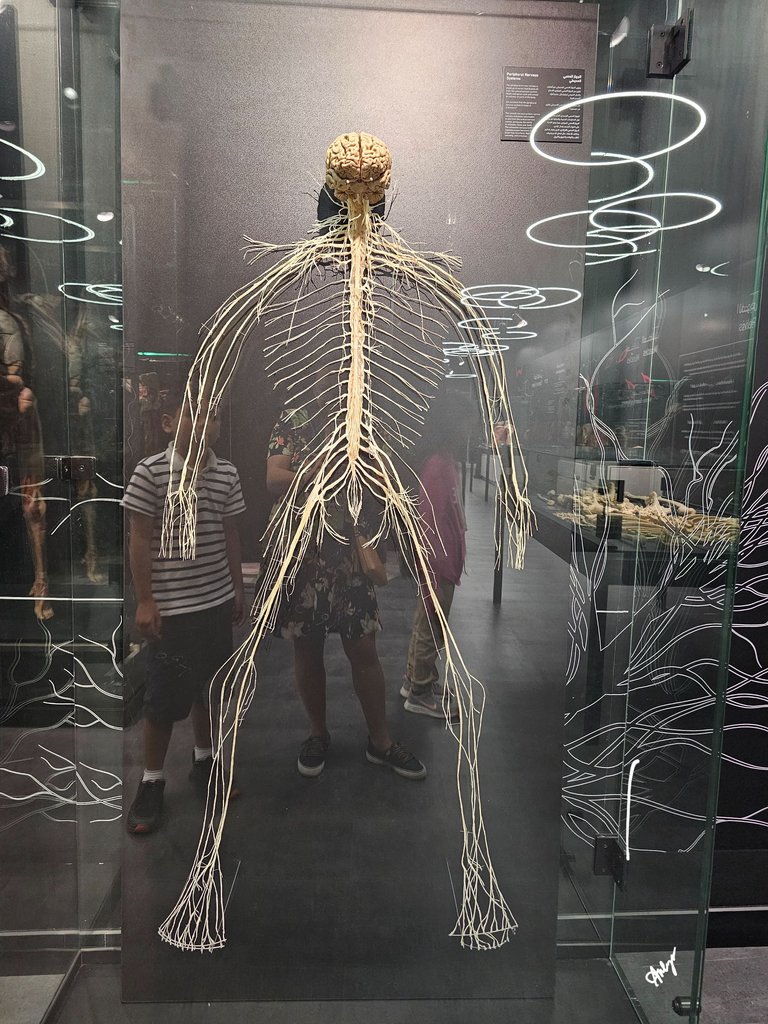
These are responsible to sending sensations to our body, involuntary actions like blinking, even breathing and digesting our food.
Super amazing.
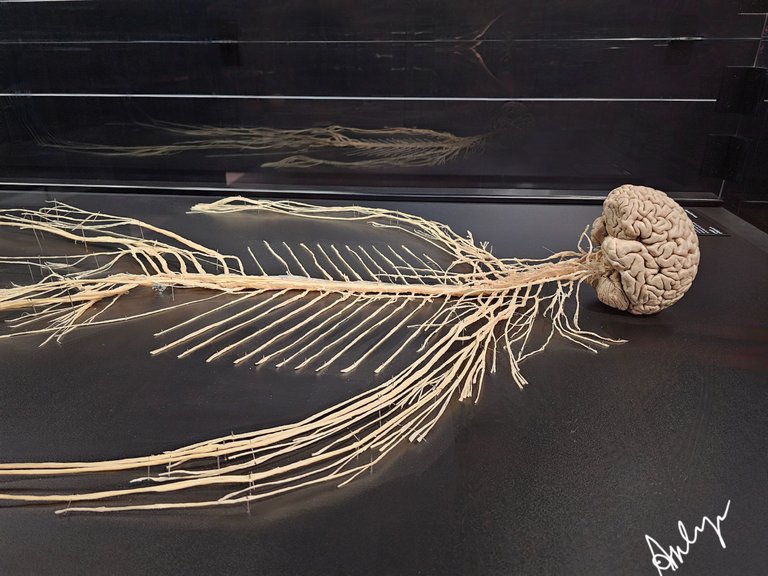
We are used to seeing skeletons. They are most of the time regarded as creepy. Because why not, they are the remains of the dead.
At least these ones are presented in away that are easier to look at. There were also some trivia shown on the board next to the exhibit.
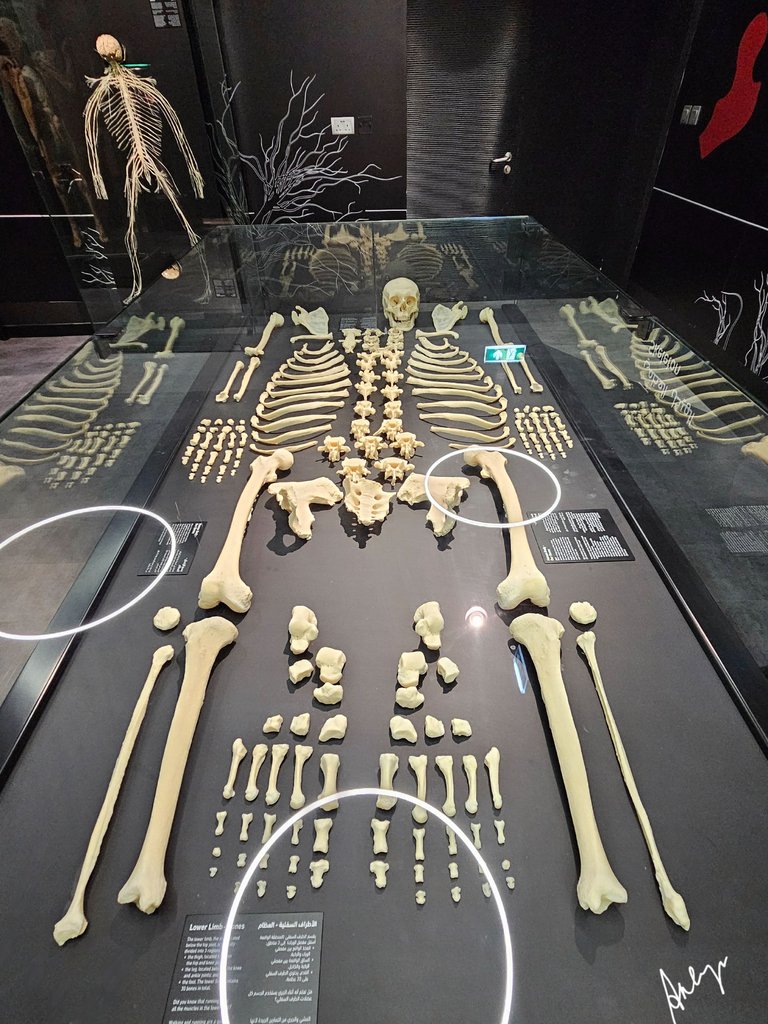
Speaking of trivia...
Here's one that's displayed on the wall of the museum.
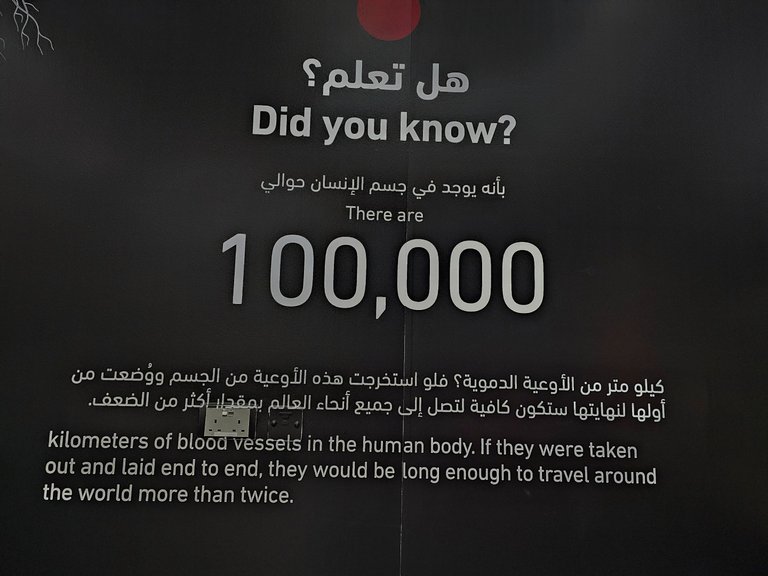
"How did they even know that?!" asked Little Miss. "Because they study human body in ways like these... " I pointed to the exhibit.
There were still a lot of body parts that were there in the exhibit like, the pelvis - both male and female, digestive system, the circulatory system, the bones, the feet, the hands, all presented in ways we could now never forget.
"I will ever think of the human body the same way ever again," my eldest said. He also circled through the whole exhibit 3 or 4 times. LOL.
I think I traumatized them. 🤦♀️
We had to shake off the odd feelings we got from the museum. The thought that these are real human body remains, gives it a different vibe.
Likewise, we whispered a short "Thank you" before we left, to these donors who are now part of our learning.
We had a sort of "debriefing" after this short museum tour. We discussed how important this kind of exhibits are for the advancement of medicine and science. There are things that cannot be achieved using prototypes alone.
We strolled around the university campus for quite some time -- admiring the architecture and design of this wonderful place. While resting at the lounge, we were approached by another homeschooling family. They were also going to the museum - kids grades 2, 4, and 6, and their parents. I noticed the boy looked so little. The mom said he's turning 8. I hope he also takes the museum well.
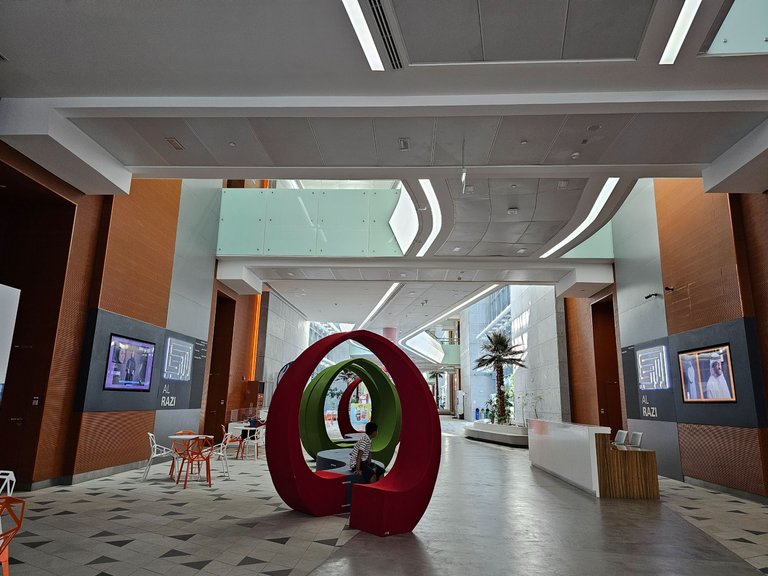
All photos are owned by the author unless stated otherwise.


Congratulations, your post has been added to Pinmapple! 🎉🥳🍍
Did you know you have your own profile map?
And every post has their own map too!
Want to have your post on the map too?
An interesting tour, I love museums and this one about the human body part by part is a wonderful and excellent way to learn. Thanks for sharing
Hiya, @choogirl here, just swinging by to let you know that this post made it into our Honorable Mentions in Travel Digest #2124.
Your post has been manually curated by the @pinmapple team. If you like what we're doing, please drop by to check out all the rest of today's great posts and consider supporting other authors like yourself and us so we can keep the project going!
Become part of our travel community:
Thank you!